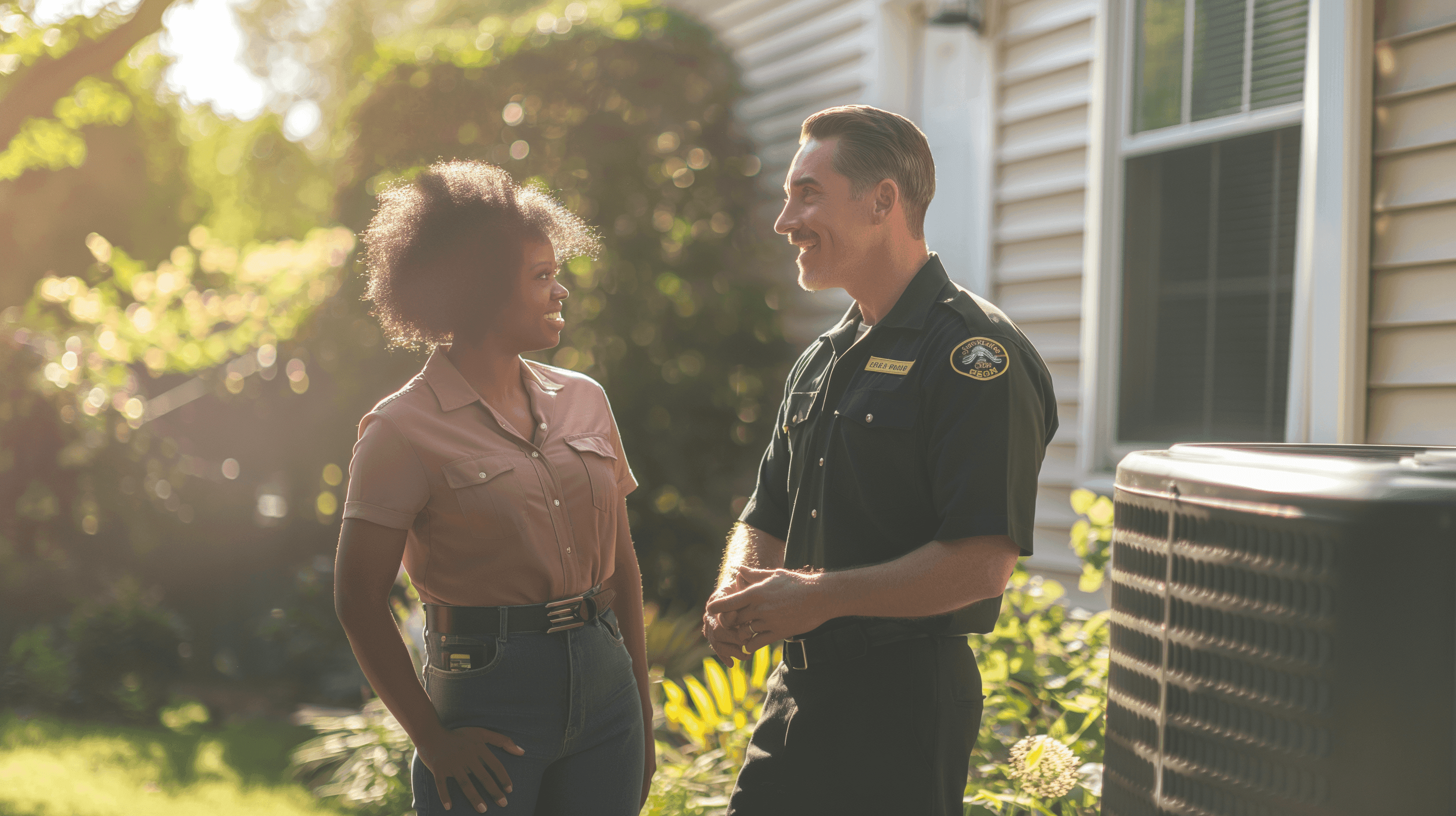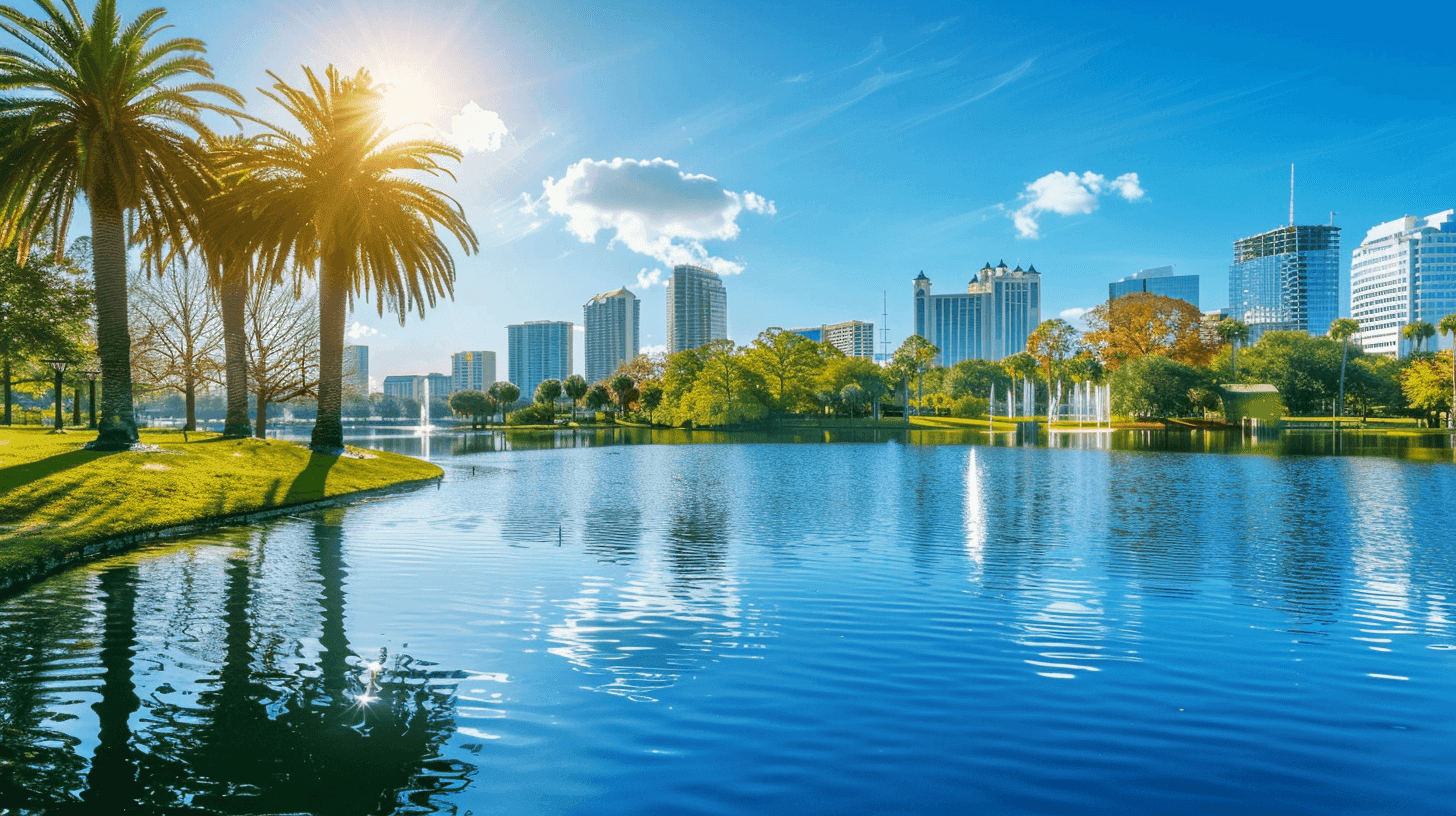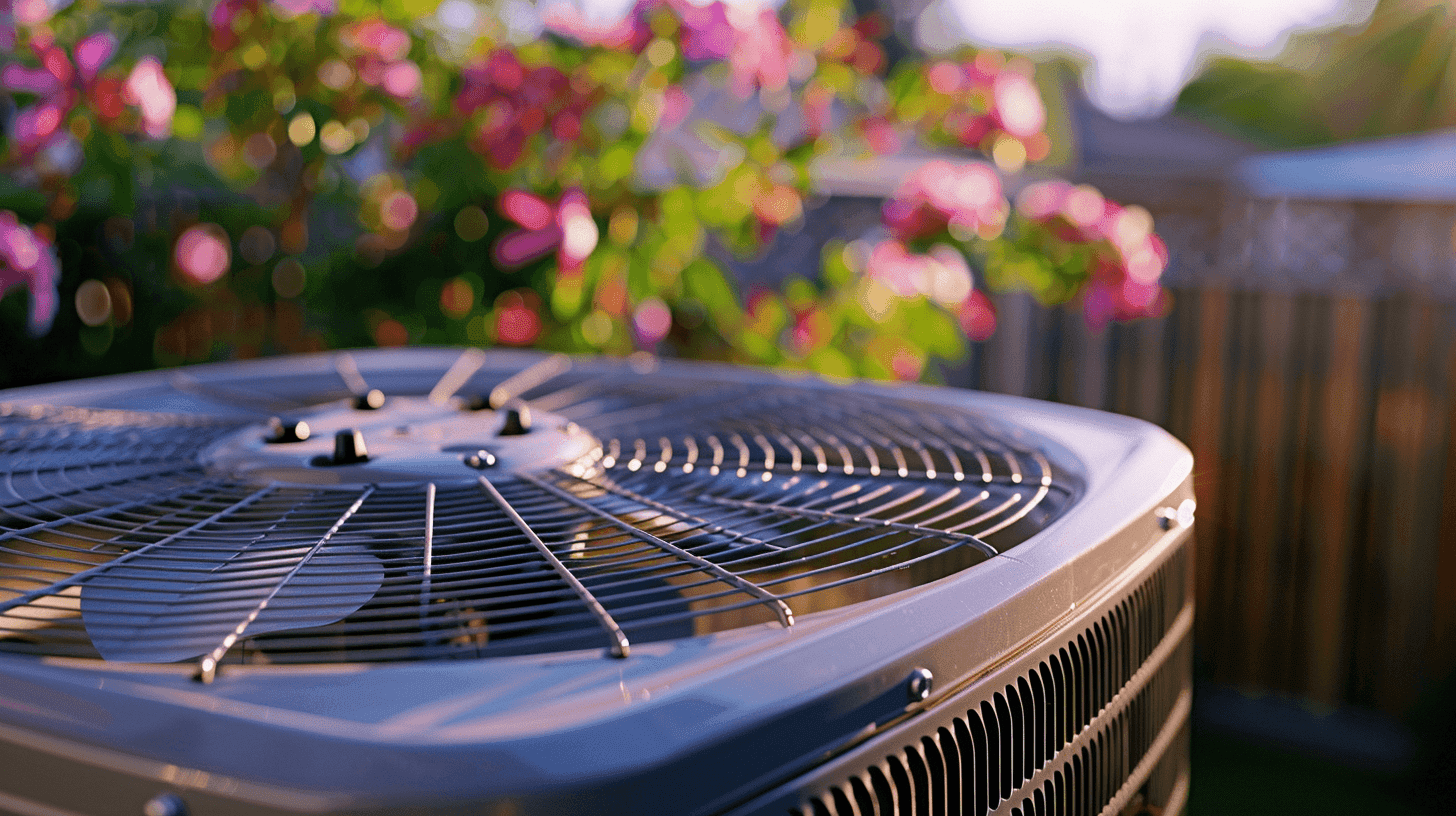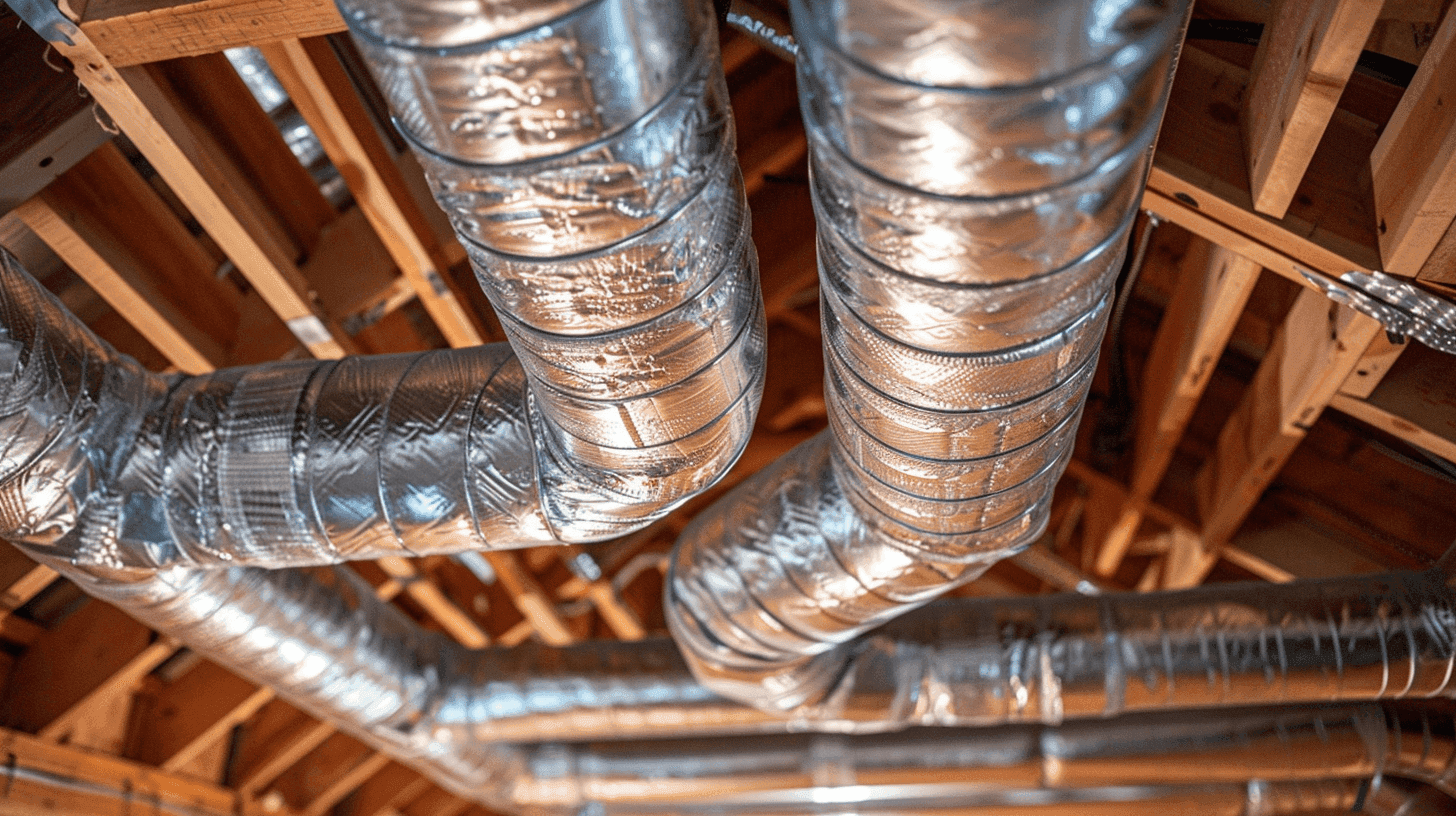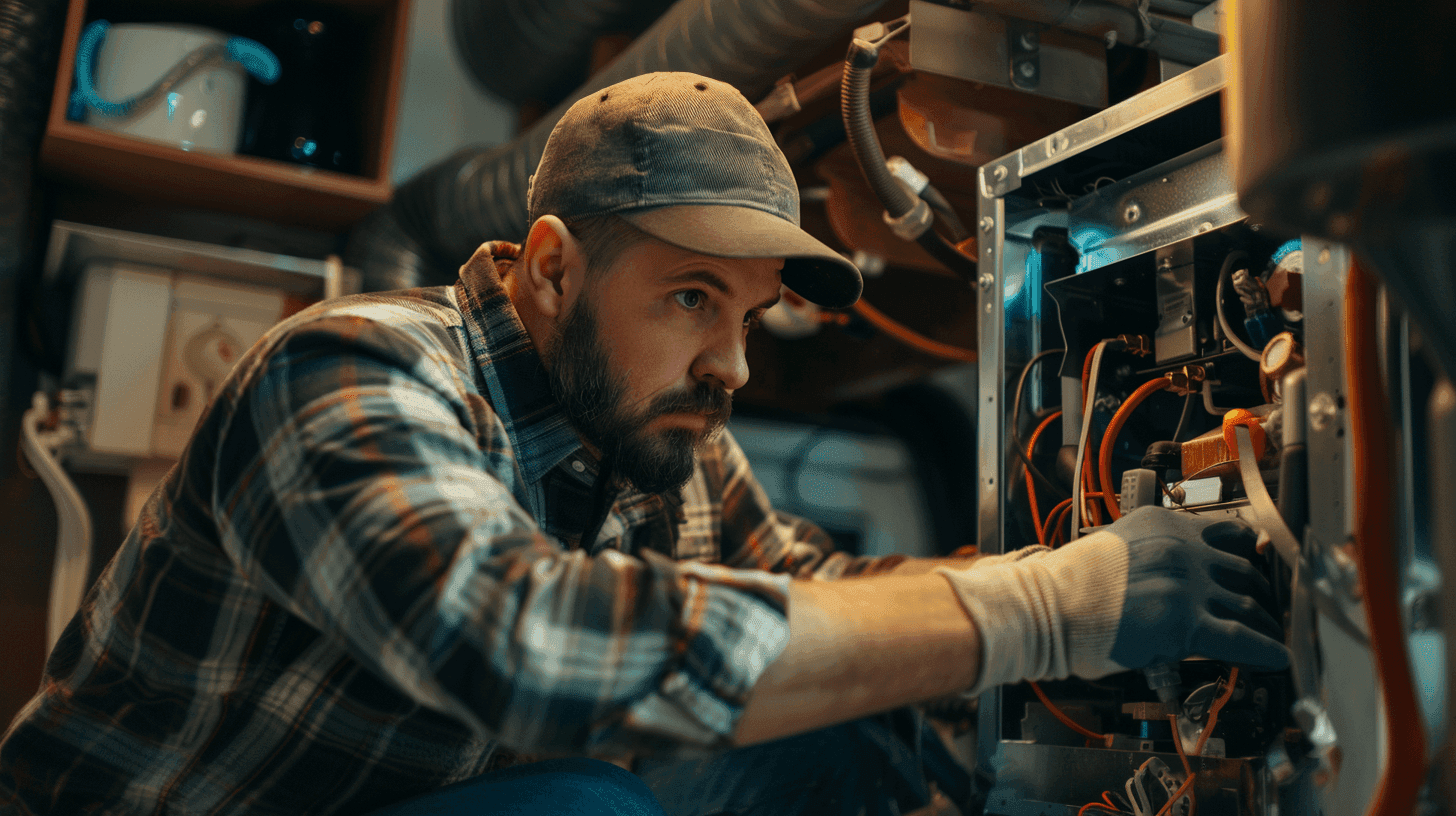
The difference between air purifiers and humidifiers
Sharing your quote takes less than a minute
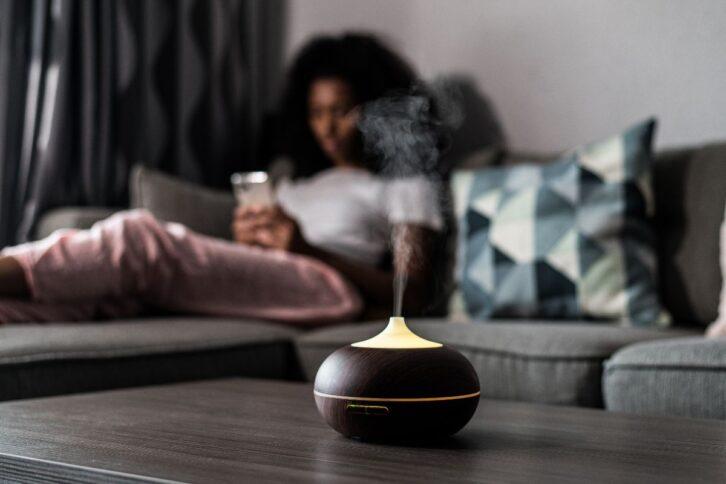
Indoor air quality (IAQ) can have a surprising impact on your wellness and respiratory health. Two popular IAQ products, air purifiers and humidifiers, boost your air quality differently.
In this piece, we’ll explain the difference between air purifiers and humidifiers. Armed with the right information, you can choose which is best for your lifestyle and needs.
Air purifiers vs. humidifiers
Air purifiers clean indoor air of pollutants and allergens. Most air purifiers work this way:
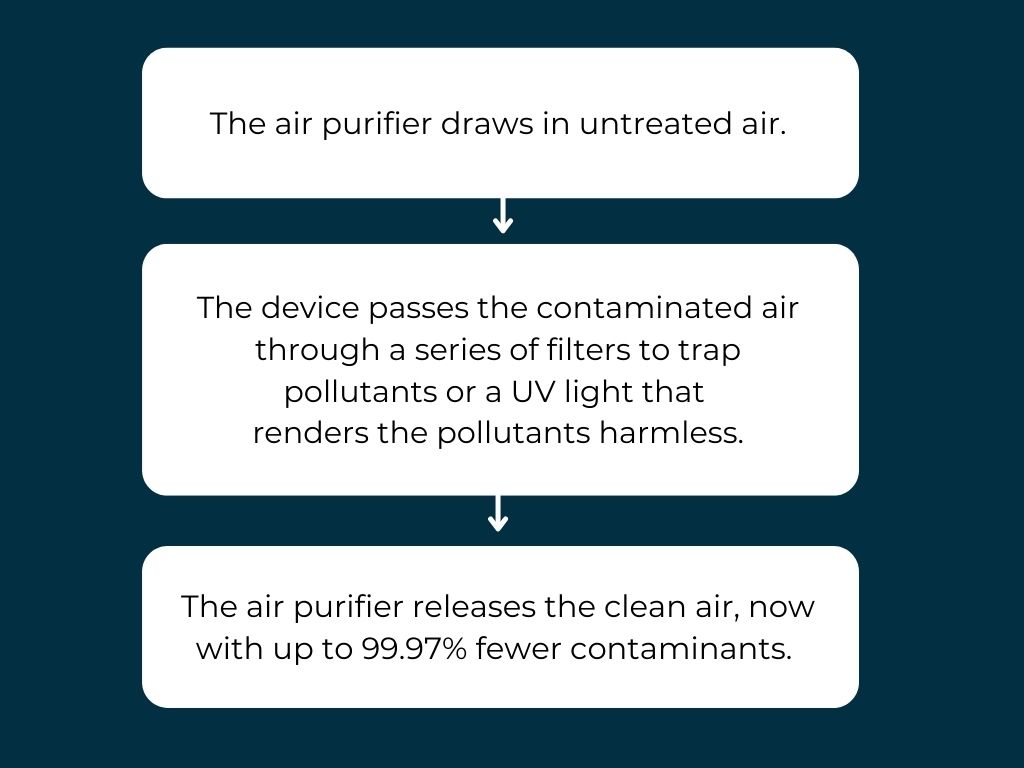
Humidifiers don’t clean the air but add moisture to make it more humid. Most humidifiers work this way:
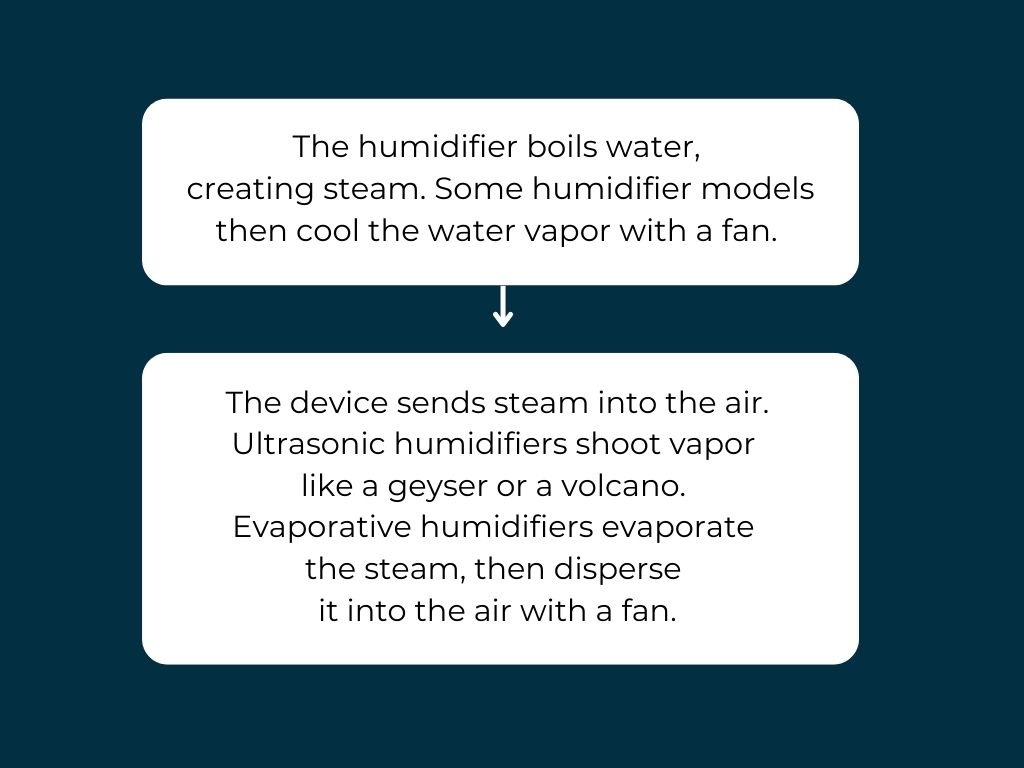
What’s the difference between air purifiers and humidifiers?
Air purifiers and humidifiers can be easy to confuse. Both products come in portable and whole-home models, and many air quality brands sell both devices.
Still, the products operate differently and serve unique purposes. Here’s a look at some of the similarities and differences between air purifiers and humidifiers:
| Air purifier | Humidifier | |
|---|---|---|
| Purpose | Removes airborne germs, boosting indoor air quality | Adds moisture to air, improving indoor comfort and humidity |
| Price (portable) | $40+ (value models) $300-1,200 (luxury models) | $30+ (value models) $100-1,000 (luxury models) |
| Price (whole-home) | $500-4,120 | $200-1,100 |
Pros and cons of air purifiers
| Pros | Cons |
|---|---|
| Kills airborne germs | Some models are costly to operate |
| Promotes allergy and asthma relief | Replacement filters are usually brand-specific (no generics available) |
| Models with a carbon filter remove odors |
Pros and cons of humidifiers
| Pros | Cons |
|---|---|
| Warm and cool mist options available | Does not clean or remove germs from air |
| Can reduce allergy and asthma symptoms | Can contaminate the air if operating too often or not cleaned enough |
| Promotes hydrated skin, nails, and nasal passages | Ultrasonic models can leave white dust on furniture and clothes |
The air purifier vs. humidifier debate has no clear-cut winner. Depending on the indoor air quality issues you’re facing, one product is usually more advantageous.
In some situations, combining both products makes air cleaner and more comfortable. A poorly maintained humidifier can counteract an air purifier’s efforts and add contaminants to the air.
Air purifiers vs. humidifiers for allergies
An air purifier is best for tackling airborne allergens. The filters trap contaminants like pollen and mold spores and even odors such as smoke.
Be sure to use an air purifier with a true HEPA filter. HEPA-type and HEPA-like filters are less effective, as the mesh is loose enough for allergens to pass through.
Humidifiers won’t reduce the airborne allergen count, but they can alleviate your allergy symptoms. The increased water vapor softens your nasal passages, making breathing easier.
While an air purifier can operate constantly, we suggest using the humidifier sparingly. Dust mites and other allergens spread quickly when humidity levels climb to 70%. We recommend a humidifier with a timer or auto-shutoff setting to keep humidity levels 30-50%.
Air purifiers vs. humidifiers for asthma
An air purifier is better for people with asthma. Air purifiers remove the airborne contaminants that trigger asthma, providing relief in as little as 45 minutes.
Be sure to replace your air purifier filter as often as the manufacturer suggests, typically every 1-3 months. If you don’t, the air purifier cannot effectively trap contaminants.
Humidifiers have no germ-fighting abilities. However, the increased moisture in the air may temporarily relieve symptoms such as a runny nose.
If you’re using a humidifier as supplemental asthma care, completely replace the water between refills. Any mold or moisture buildup will aggravate asthma symptoms and worsen the issue.
For more cleaning tips, check out our humidifier maintenance section below.
Air purifiers vs. humidifiers for babies
Babies can struggle with dry, stuffy noses and coughing conditions like croup. A cool mist humidifier is a great solution, as the moisture boost makes breathing easier for little ones.
Warm mist humidifiers are not safe for a baby’s nursery. The hot steam poses a safety hazard, especially when placed near the baby’s crib.
If you smoke in the house, we recommend doubling up with an air purifier. Models with an activated carbon filter remove smoke odors, which can irritate a baby’s lungs.
Air purifiers vs. humidifiers for COVID
The virus that causes COVID-19 is about 2,000 times smaller than a dust mite. While some air purifier brands claim their filters can trap the virus, scientists have NOT proven that air purifiers combat the COVID-19 virus.
The EPA reports that a portable air purifier cannot protect you from contracting COVID-19 on its own. Other preventative measures, such as wearing a mask, are more effective.
A humidifier may offer relief if you’re suffering from COVID symptoms. Cool and warm mist models may alleviate lung irritation.
Can you use an air purifier and a humidifier together?
Yes, you can safely use an air purifier and a humidifier together. The combination of clean and moist air can relieve asthma and allergy flare-ups.
We suggest placing the devices on opposite sides of the room. If you place a humidifier too close to an air purifier, the excess moisture can clog the air purifier filter and make the device less effective.
Air purifier maintenance
Air purifiers are lower-maintenance than humidifiers. The only regular maintenance step is replacing the filter according to the manufacturer’s guidelines.
True HEPA and activated carbon filters can last 6 months to a year. You should clean or replace mesh pre-filters every 2-4 weeks.
You can order replacement filters directly from the manufacturer. Some brands offer optional auto-shipment programs, sending you replacement filters regularly.
Humidifier maintenance
While humidifiers can make your skin and nails feel hydrated, excess moisture harms indoor air quality. Without regular maintenance, humidifiers release mold, bacteria, and minerals into the air.
Here are our tips for avoiding a moisture meltdown with your humidifier:
- Every time you refill the water tank, rinse the basin with soap and water.
- Deep-clean the humidifier once or twice weekly, using either 2 cups of white vinegar OR a gallon of water mixed with a teaspoon of bleach. Do not mix vinegar with bleach. Mixing vinegar and bleach emits toxic chlorine gas.
- Use distilled water in ultrasonic humidifiers. Mineral water spreads visible bacteria and white dust through the air.
- Replace evaporative humidifier filters according to the manufacturer’s instructions. Filters usually last about 3 months.
- Deep clean and dry your humidifier before storing it to prevent mold buildup.
Whole-home air purifiers and humidifiers
Some air purifiers and humidifiers attach to your central HVAC system. Instead of setting up a portable device in each room, these devices send clean or moist air through your home’s ductwork.
According to HomeAdvisor, installing a whole-home humidifier costs $550 on average. Whole-home air purifiers are significantly more expensive to install, averaging $2,230.
If a portable model doesn’t cut it, let’s connect you with a top local expert for a high-quality, reasonably priced installation on a whole-home model.
Sharing your quote takes less than a minute

